Related Research Articles

An apartment, flat, or unit is a self-contained housing unit that occupies part of a building, generally on a single storey. There are many names for these overall buildings. The housing tenure of apartments also varies considerably, from large-scale public housing, to owner occupancy within what is legally a condominium, to tenants renting from a private landlord.

Forest Hill is a neighbourhood and former village in Midtown Toronto, Ontario, Canada, located north of Downtown Toronto. The village was amalgamated into Toronto in 1967 and the area has retained its name as a neighbourhood. Along with other neighbourhoods such as Rosedale and The Bridle Path, it is one of Toronto's wealthiest and most affluent neighbourhoods. It is home to many prominent entrepreneurs, celebrities, engineers, doctors, and lawyers. Census data from Statistics Canada states an average income for all private households in Forest Hill to be $101,631, compared to the $40,704 average income in Toronto's Census Metropolitan Area.
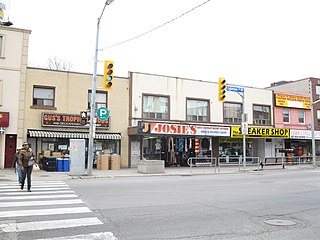
York is a district and former city within Toronto, Ontario, Canada. It is located northwest of Old Toronto, southwest of North York and east of the Humber River.
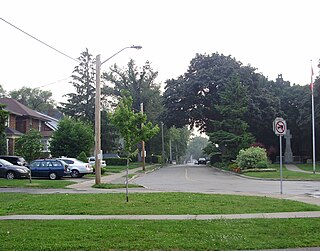
Mimico is a neighbourhood in Toronto, Ontario, Canada, being located in the south-west area of Toronto on Lake Ontario. It is in the south-east corner of the former Township of Etobicoke, and was an independent municipality from 1911 to 1967.
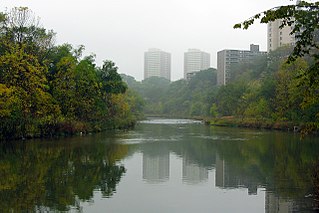
Weston is a neighbourhood and former town in Toronto, Ontario, Canada. The neighbourhood is situated in the northwest of the city, south of Highway 401, east of the Humber River, north of Eglinton Avenue, and west of Jane Street. The eponymous Weston Road, just north of Lawrence Avenue is the historic core of Weston, with many small businesses and services. Weston was incorporated as a village in the 19th century and was absorbed into the Borough of York in the late 1960s. York itself was amalgamated into Toronto in 1998. Weston is one of the few former towns and villages in Toronto located in a generally suburban setting, although it is contiguous with the inner city to the southeast along Weston Road. It is also one of the few not developed as a planned satellite town, as is the case with Leaside or New Toronto.

Abraham "Abe" Cahan was a Lithuanian-born Jewish American socialist newspaper editor, novelist, and politician. Cahan was one of the founders of The Forward, an American Yiddish publication, and was its editor-in-chief for 43 years. During his stewardship of the Forward, it became a prominent voice in the Jewish community and in the Socialist Party of America, voicing a relatively moderate stance within the realm of American socialist politics.

Joseph Zuken was a popular Communist politician in Winnipeg and the longest serving elected Communist party politician in North America. He served on the Winnipeg city council from 1961 to 1983.
Canadian Jews, whether by culture, ethnicity, or religion, form the fourth largest Jewish community in the world, exceeded only by those in Israel, the United States and France. As of 2021, Statistics Canada listed 335,295 Jews in Canada. This total would account for approximately 1.4% of the Canadian population.
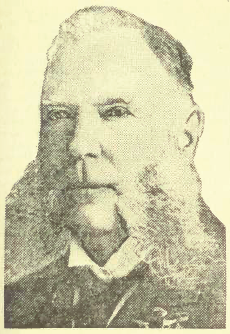
John Shaw was Mayor of Toronto from August 6, 1897, to January 1, 1899.
Harry Steppe, March 16, 1888 – November 22, 1934 was a Russian Jewish-American actor, musical comedy performer, headliner comedian, writer, librettist, director and producer, who toured North America working in Vaudeville and Burlesque. Steppe performed at several well-known theaters on the Columbia, Mutual and Orpheum circuits. Steppe was one of Bud Abbott's first partners.

The Ward was a neighbourhood in central Toronto, Ontario, Canada, in the 19th and early 20th centuries. Many new immigrants first settled in the neighbourhood; it was at the time widely considered a slum.
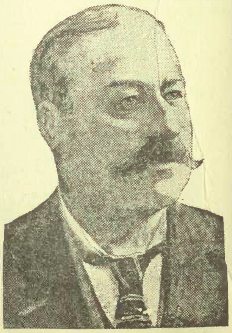
Ernest Albert Macdonald was Mayor of Toronto in 1900.
The Board of Control of Toronto, Ontario, Canada, was a part of its municipal government until it was abolished in 1969. It served as the executive committee of the Toronto City Council. When it was initially created in 1896 by mandate of the provincial government, it consisted of three Controllers appointed from and by the aldermen, and presided over by the Mayor of Toronto. Beginning in 1904, the Board of Control was directly elected by the city's electorate and consisted of four Controllers, presided over by the Mayor. Each voter could vote for up to four candidates, and the four with the most votes were elected. By tradition the controller who received the most votes would get the powerful budget chief position.
Municipal elections were held in Toronto, Ontario, Canada, on December 6, 1954. Incumbent mayor Leslie Saunders was defeated by Nathan Phillips in a close contest.
Joseph Singer, K.C., was a Toronto city councillor, lawyer and prominent figure in the city's Jewish community. He was the third Jewish candidate to be elected to Toronto City Councillor, and the first Jew to win citywide election to the Toronto Board of Control.

Anshei Minsk is a synagogue in the Kensington Market neighbourhood of Toronto, Ontario, Canada. It was founded in 1912 by poor Jewish immigrants from what is now Belarus, which at the time was part of the Russian Empire. The current Byzantine Revival building was completed in 1930.
The Beach Hebrew Institute is a synagogue in The Beaches neighbourhood of Toronto, Ontario, Canada. Founded in 1919 as an Orthodox Jewish congregation, the members purchased their current building—a former church—in 1920, and renovated it in 1926.
The Jewish community in Ottawa grew rapidly between the 1850s and the early 20th century, settling mainly in the Lower Town area. According to the census, the Jewish population went from a mere 4 people in 1861 to 398 by 1901, and then grew to 1,776 by 1911, continuing to rise. Jewish traders became predominant in the ByWard Market. Various organizations were formed within the community to help newer immigrants.
Harry W. Hunt was a businessman who was an alderman on Toronto City Council in the 1920s and 1930s and twice ran for Mayor of Toronto in 1935 and 1936.
References
- 1 2 "Harry Winberg Says Work Put Him On Easy Street", Toronto Daily Star, December 29, 1915, pg 4
- 1 2 3 Richard Dennis, "Toronto's Original Tenement: Wineberg Apartments", The Ward: The LIfe and Loss of Toronto's First Immigrant Neighbourhood (Edited by John Lorinc, Micheal McClelland, Ellen Scheinberg, and Tatum Taylor), Coach House Books, Toronto, 2015, pgs 204-207, ISBN 9781770564190
- ↑ MAYORALTY CANDIDATE HAD METEORIC CAREER: HARRY WINBERG STARTED IN CANADA AS COUNTRY ROAD PEDDLER The Globe (1844-1936); Toronto, Ont.. 31 Dec 1915: pg 9.
- ↑ "Questions & Answers", Toronto Daily Star (1900-1971); Toronto, Ontario. 13 Dec 1950: pg 6
- ↑ GIVES HIS REASONS FOR QUITTING FIELD, The Globe (1844-1936); Toronto, Ont.. 22 Oct 1925: page 12